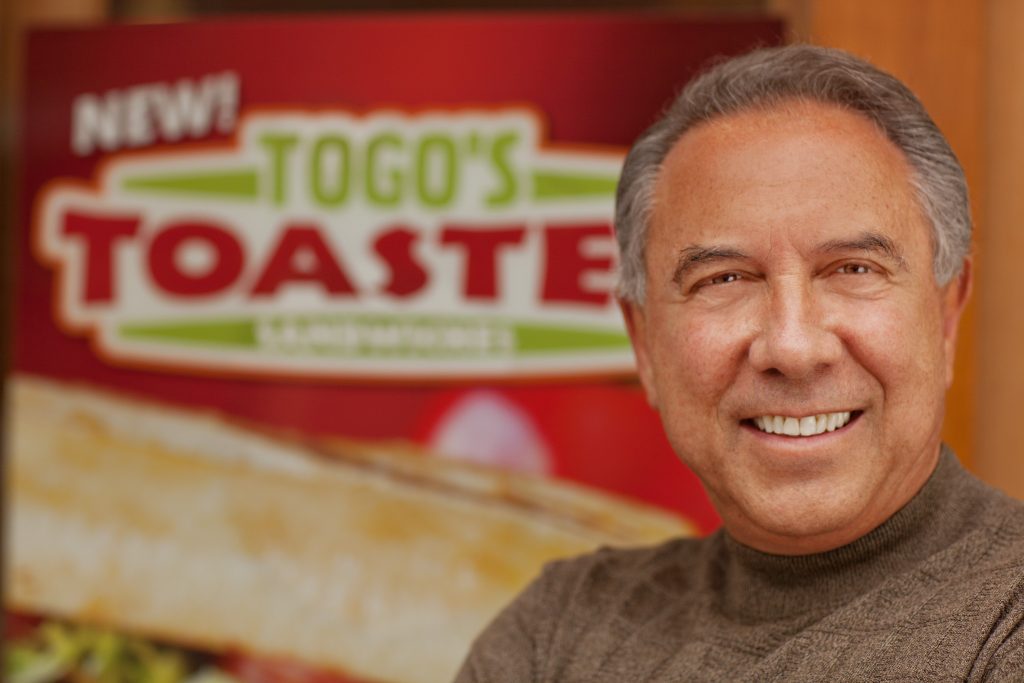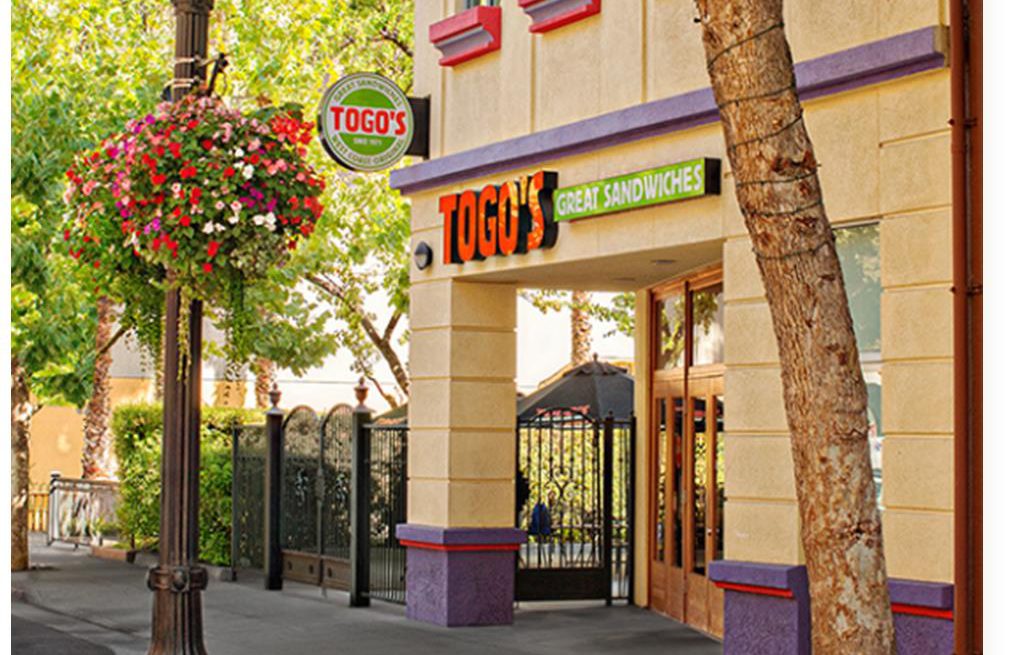Hand-Crafted Franchise Fulfillment
2 Min Read By Barbara Castiglia
There are only two key ingredients in the recipe for sustainable franchise growth, according to Tony Gioia, CEO of Togo’s West Coast Original Sandwiches.
“Food and service is what creates the loyal customer base,” he told Modern Restaurant Management magazine. “You can make it very complicated, but it comes down to a simple value proposition. It’s always about the food. At Togo’s it’s big, fresh meaty sandwiches served with a smile.”
The chain, started in 1971 as a simple sandwich shack near San Jose State University, now has more than 325 restaurants along the West Coast including a recently opened location in Chatsworth, CA with more on the way.
“We have a nice development pipeline,” Gioia boasted.

At end of last year, Mainsail Partners, Togo’s co-owner, agreed to sell its shares to Nimes Capital. Gioia retained his ownership stake and continues to lead the revitalization and expansion efforts. Mainsail and Gioia acquired the franchise in 2007 and he and his executive team moved the brand forward by improving operations and entering into company-owned operations. The franchise also introduced new logos, revamped restaurant designs, updated menus, and added online and mobile ordering.
Billed as the “West Coast Original,” the franchise established a reputation for fresh artisan breads, premium, hand-sliced meats, and freshly-scooped Hass avocados. The brand’s top-selling #9 Hot Pastrami Sandwich comes complete with a money-back guarantee. Togo’s has one of the highest average unit volumes in the QSR sandwich segment at $660,000 and more than 20 percent of the chain’s units perform at over $813,000, according to company research.
“Each sandwich is hand crafted and made just for you,” explained Gioia. “There’s no assembly line feel here.”

Gioia, a keen supporter of the franchise model, feels the U.S. is a great incubator for brands.
“Franchises are incredibly powerful and the best examples of American entrepreneurship,” he said. “The sweat equity here is accelerated all over the globe.”
Gioia believes successful franchises need to have the right infrastructure, team and cultures in place as well as a sound business model that is seamless for operators and consumers alike.
“You’ll have a higher return of success by taking the right steps and working at the optimal level. It’s important to have a ‘culture compass’ in place and keep it sustainable. It’s difficult to measure, but executives need to understand the human psyche and be accountable leaders.”
While he is seeing franchise interest from diverse groups, he noted the similarities in having passion, energy and a connection to what they want to achieve.
“There are so many coming out of a traditional jobs who want to live the American dream and own their own business, while millennials need much more of an emotional connection to resonate with them. They ask: Why would I want to do this instead of will I make money? It’s not just about making money anymore.”


